
Iraq: One Year
After The Beginning of The War
A special Presentation

It has been almost one year since "Operation Iraq Freedom" commenced, and, for
many Iraqis it has brought a lifetime of change: 25 million Iraqis are free,
Saddam Hussein is in custody, his two sons are dead, and the country has a new
transitional administrative law.
President Bush said the adoption of that law marks "a historic milestone in the
Iraqi people's long journey from tyranny and violence to liberty and peace." The
seeds of democracy have been planted and the foundation for democratic elections
has been established. The goal of some 34 nations who have forces in Iraq is to
create the conditions that will lead to Iraqi civil-military self-reliance.

The interim constitution that the Iraqi Governing Council (IGC) signed March 8
guarantees freedom of religion, worship and expression; the right to assemble
and organize political parties; and the right to vote and demonstrate. It
prohibits discrimination based on religion, gender or nationality as well as
arbitrary arrest or detention. A year ago "none of those protections could have
been imagined by the Iraqi people. Today, they're real," says Defense Secretary
Donald Rumsfeld, "It's an historic moment in history, one that shows the power
of freedom."
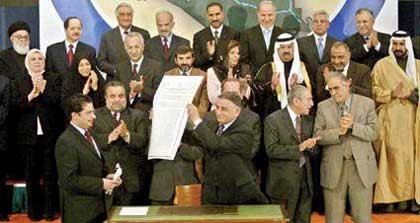
Rumsfeld also points out that mass graves are no longer being filled in Iraq,
and, he says, a country that had been oppressed brutally by a dictatorial leader
is now "on a path to democracy."
There is much to report in a year of whirlwind change. A year ago television
screens across the globe broadcast scenes of widespread looting in the chaos
that often follows war. Today, according to the newsletter "Iraq Reconstruction
Report," millions of Iraqis are buying cell phones, cars and satellite dishes,
and private companies are setting up computers with Internet connections.
There are so many dichotomies in Iraq. There are hospitals that American
military personnel have rebuilt, but doctors who are handicapped by the absence
of critical supplies. Oil flows through pipelines that service personnel have
repaired but there are still occasional saboteurs that come by night. There are
new Iraqi politicians that are now in the limelight and there are those
individuals who have been sidelined permanently.
As Deputy Defense Secretary Paul Wolfowitz points out "it's a new and different
Iraq."
Whatever Iraq is today, the opportunities and the accomplishments can be traced
back to March 19-20, 2003, when an international coalition coalesced and
unleashed change of monumental proportions. Iraqis from all walks of life are
free now to voice their opinions about the direction of the country's future. As
Secretary of State Colin Powell pointed out, vibrant debate is underway.
There is a 25-member Iraqi Governing Council (IGC) grappling with the problems
of the day. The existence of the IGC as well as district, local and municipal
councils indicates that Iraqis are willing to do the difficult work required of
a democracy, according to Rumsfeld.

Iraqi Governing Council President Adnan Pachachi says Iraqis are united on two
points --- without military intervention, Saddam Hussein would still be in
charge, and, an American military presence is needed even after Iraq becomes
sovereign to help ensure law and order. U.S. Central Command officials have
warned that violence in Iraq may increase as sovereignty draws near, but they
have made clear that Iraq will not be abandoned as 100,000 U.S. troops will
remain.
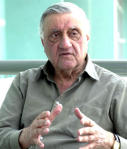
On June 30, after turning over sovereignty to Iraq, the Coalition Provisional
Authority (CPA) that has been running Iraq will dissolve. The goal includes
turning over "a fully equipped ... trained, experienced Iraqi security
apparatus," according to U.S. Army Brigadier General Mark Kimmitt. The deputy
director of operations for Coalition Joint Task Force-7 says that would include
a new Iraqi Army, an Iraqi Civil Defense Corps, and a police force all working
for an Iraqi minister of defense and a Joint Force Headquarters Command
incorporating an Iraqi Interior Ministry.
Last May there were no Iraqi security forces. Today, there are more than 200,000
(including 75,000 new police recruits). The coalition is training and equipping
nine Iraqi infantry brigades with 27 battalions (the fourth battalion is being
trained now). Work is also under way to create a small Coastal Defense Force
with a patrol boat squadron of five 30-meter boats and a naval infantry regiment
that can protect Iraq's coastline. An Iraqi Riverine Patrol service will be
formed to oversee internal waterways and a small Iraqi Army Air Corps will be
equipped for transport and logistical functions.

Fostering stability in Iraq makes political and economic recovery possible.
There are some 23,000 coalition personnel from 35 nations working on stability
operations in Iraq and another 114,000 from the United States (26,000 in
Kuwait). U.S. coalition forces are conducting, on average, 10,000 patrols and
100 raids weekly that help remove deadly weapons like rocket-propelled grenade
launchers from the streets.
Much has been invested in eliminating any residual Ba'ath Party influence. Among
the top 55 most wanted former regime members, 46 have been killed or captured.
Security makes everything possible, but so does outright reconstruction.
Recovery efforts also have been stimulated by civil-military investments with
U.S. coalition forces responsible for 13,000 projects including rebuilding
bridges, roads and sewers; clearing 18,500 kilometers of irrigation canals; and
refurbishing more than 600 schools, 70 mosques and 75 medical facilities.
Playgrounds, water treatment plants, small businesses, soccer fields, youth
centers and childcare centers have also benefited from the military's "can-do"
attitude.
and
refurbishing more than 600 schools, 70 mosques and 75 medical facilities.
Playgrounds, water treatment plants, small businesses, soccer fields, youth
centers and childcare centers have also benefited from the military's "can-do"
attitude.
What lies ahead for the Iraqi economy as it continues to stabilize? Powell says:
"We're going to jump-start the economy as fast as we can with the money that
Congress has provided." And, after two years of economic decline, the World Bank
Group estimates that Iraq's GDP (Gross Domestic
Product) will rebound by 33 percent this year.
A March 11 Christian Science Monitor article says the World Bank is predicting
Iraqi oil production will recover almost to prewar levels later this year to
around 2.7 million barrels per day compared to 2.8 million daily before the war.
Right now, Iraq is bringing in revenues by exporting around 1.8 million barrels
a day compared to more than 2 million barrels a day in exports in early 2003.

Iraq's infrastructure is recovering in other ways as well. On the list of
quality-of-life improvements: electrical power flows again at prewar levels and
is projected to continue to rise throughout 2004.
CPA senior advisor Dan Senor says that resurrecting both the oil and electrical
infrastructures are critical "to getting Iraq on a path to self-sustaining
economic independence."
In addition:
-- A National Employment Program has created some 76,000 jobs already in an
effort to reduce a sky-high unemployment rate;
-- Contracts have been signed to bring life back to key airports in Basra, Mosul
and Baghdad;
-- Iraq also has been granted observer status by the World Trade Organization;
and
 -- Iraqis have a new currency that doesn't evoke memories of the dictatorship.
-- Iraqis have a new currency that doesn't evoke memories of the dictatorship.
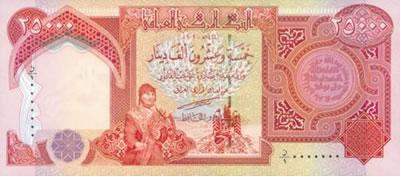 There is good news, too, on the educational front: more than five million Iraqi
students are back in school and more than 51 million new Ba'ath-free textbooks
are in circulation.
There is good news, too, on the educational front: more than five million Iraqi
students are back in school and more than 51 million new Ba'ath-free textbooks
are in circulation.
Health care has been another key priority for revitalizing Iraq. The Iraqi
Ministry of Health reports some 100,000 healthcare professionals working in 240
re-opened hospitals and 1,200 clinics.
Other highlights of the new Iraq include a constitution that provides for an
independent judiciary, the reopening of 400 courts, and plans to convene a trial
to prosecute Saddam Hussein.
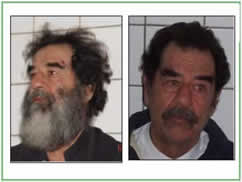
Media developments include a free press of 170 newspapers as well as a spectrum
of opinion available through broadcast outlets.
No less remarkable is the success of women-in-government initiatives. Iraq has a
female minister of public works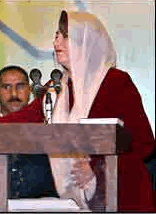 and there are three women serving on the
Governing Council. In addition, the principal representative of Iraq to the
United States is a woman, six of 37 Baghdad City Council members are women, and
nearly 100 women serve throughout the country at all levels on local councils.
and there are three women serving on the
Governing Council. In addition, the principal representative of Iraq to the
United States is a woman, six of 37 Baghdad City Council members are women, and
nearly 100 women serve throughout the country at all levels on local councils.
This, and more to come in Iraq, is part of what Powell describes as the noisy
process of democracy in action.
By Jacquelyn S. Porth Washington File Security Affairs Writer
(The Washington File is a product of the Bureau of International Information
Programs, U.S. Department of State. Web site:
http://usinfo.state.gov)